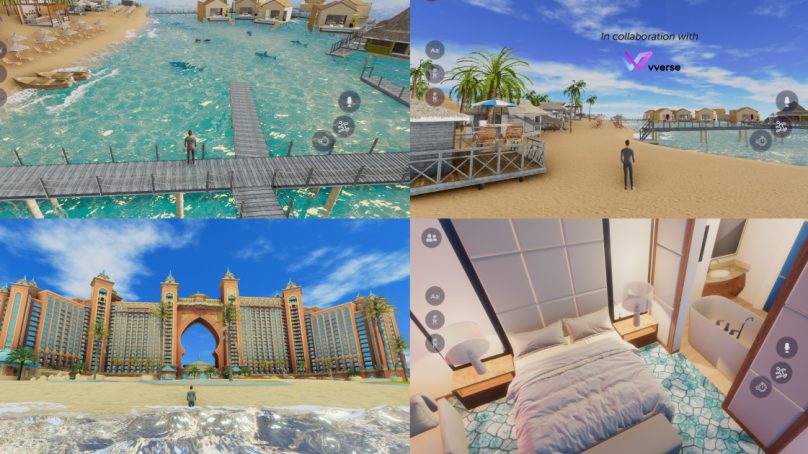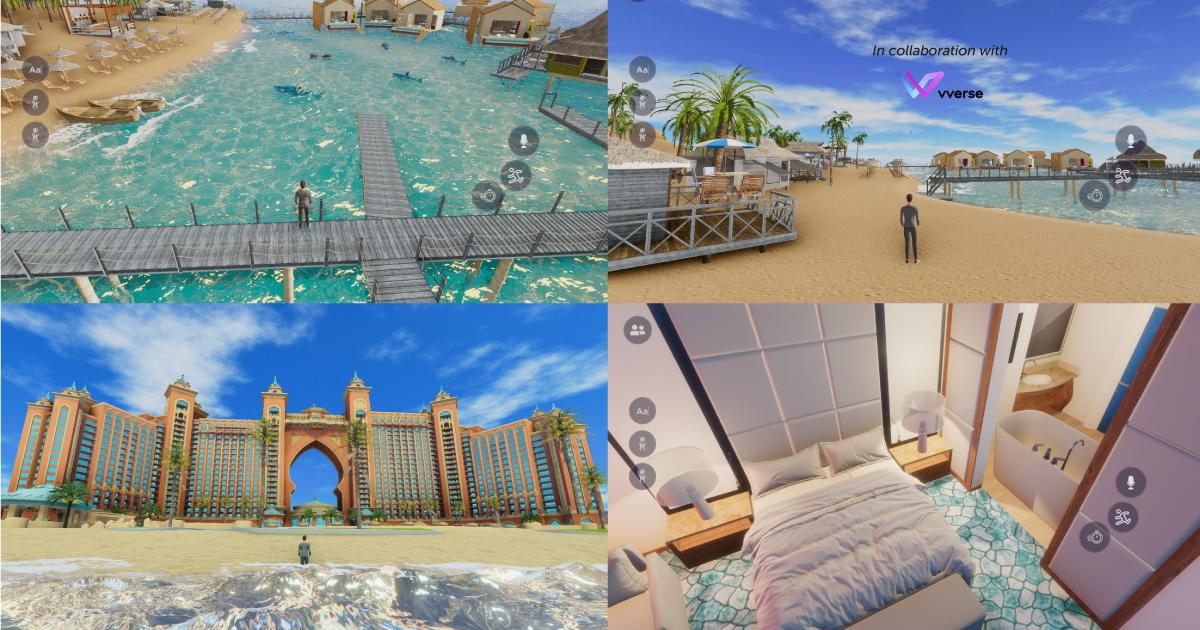

Dealing with technology is fascinating. Not only is it an ever-developing field that is having an impact on humanity on a daily basis, but it has also proved to be the go-to tool for developing people, countries and, in fact, the entire planet. Technologies like artificial intelligence (AI), analytical tools, WEB 3.0 and the metaverse are recognized as vital in optimizing human life on earth by breaking down barriers and empowering people and communities.
Technology has long been a driving force in setting how businesses and industries function, and its advancement has paved the way for many sectors to develop and onboard the future. The travel and tourism industry was among the first to embrace technological advancement, with the combination of technology and travel playing a crucial role in reshaping the way we enter a new, interactive
and exciting experience. These key developments have set the scene for metaverse technologies to take travel services to a new level.
The metaverse unpacked
The metaverse is the current buzzword worldwide, with discussions taking place across the globe on the implications of this mammoth leap in technology and how it can benefit humanity, especially in its new iteration.
This technology is still in the early stages of development, and no single, all-encompassing definition exists yet as a reference point. Put simply, however, the metaverse is one large virtual community where people can work, play, trade, communicate, interact and enjoy themselves. The key point is that there is no single virtual world for this community, rather, there are many, that are emerging to allow people to digitally deepen and extend social interactions. This is accomplished by incorporating an immersive, three-dimensional layer into the web, resulting in more authentic and natural experiences for people in an innovative virtual world that has all the elements of the real world, but with a wealth of additions. This virtual world is created by the convergence of various technologies, such as virtual reality (VR), augmented reality (AR) and AI, each of which is reshaping the travel industry.
The very real benefits of VR and AR
These two technologies have already made their way into the travel industry. VR allows users to experience a destination virtually, while AR enhances the real-world experience by overlaying digital information onto the physical environment.
The use of VR and AR in the travel industry is still in its early stages, but both have already proven to be powerful tools, capable of enhancing the online presence of travel and tourism companies. Significantly, VR and AR
are enabling industry players to present their customers with a next-generation product display by offering a full metaverse experience of their services.
In the hotel segment, customers can enjoy an immersive virtual experience in which they can roam the premises virtually, whether in web form or through VR. Potential travelers can tour rooms, test services and amenities, and check out the view and the surroundings, exploring every aspect of the property before they decide whether to complete a booking.
Similarly, operators of tourist attractions and activities have the opportunity to create a full virtual experience of their offering, allowing users to explore the destination in detail, look around and interact with their surroundings remotely. In this way, potential visitors are given a sneak peek of what they can expect to find before visiting in person.
AR can also be used to enhance the travel experience. Travel and tourism destinations can add augmented reality features to their service area that can be accessed by mobile phone and offer a more in-depth look at a destination. For example, a museum could use AR to give visitors additional information about exhibits with international language features that enhances the experience for visitors. Some of the many other ways in which this technology can be used across the industry range from highlighting points of interest on walking tours to providing detailed descriptions of tourist attractions. There is even the potential for hotels to add QR codes to their physical locations which, when scanned, produce AR elements to guide guests to their rooms and services.
Tourism boards stand to benefit significantly from these technologies, which provide them with the means to present engaging tours of their various attractions and places of interest, alongside their unique services, in an appealing and interactive manner.
The technologies also enable these organizations to extend their reach globally and access new markets, targeting travel enthusiasts worldwide. Travel agencies, meanwhile, have the chance to provide a more interactive booking experience and engaging support service by creating virtual travel offices that customers can visit remotely.
Additionally, AI can be used to personalize the travel experience. For example, a hotel could use AI to analyze a guest’s preferences and provide customized recommendations for things to do and see in the area. Equally importantly, it can be used to empower travel content, offering potential visitors detailed descriptions of their desired destinations through optimizing searches and indexing existing travel content with key words.
A new era beckons
The metaverse is already starting to shape the travel industry, and the technologies that underpin it have the potential to revolutionize the way we travel. As they continue to evolve, more innovative use cases of these technologies in the travel industry are expected to emerge. The future of travel looks exciting, thanks to the metaverse.














